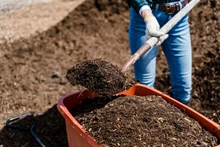
Some plants grow and develop in a healthy manner when they are transplanted into the ground but some do well when their seeds are sown directly in the ground. Transplanting seedlings and sowing seeds are two ways of propagating plants. Let’s take a look at the pros and cons of both methods of plant propagation and learn when is the right time to apply them.
Transplanting Seedlings:
Professional gardeners prefer transplanting plants that take a long time to germinate properly and need specific environmental conditions to germinate. It also gives the gardener a head start on their growing season as the garden can manipulate the temperature and humidity indoors to let the seeds germinate and plant the seedlings into the ground as soon as the active growing period starts.
Transplanting is especially helpful for people living in a cold environment with short summer spells. Planting the seeds indoors also gives them a better fighting chance as they do not have to deal with harsh weather conditions. This method of growing plants is most suitable when growing a large variety of the same plant.
Studies indicate that plants which are transplanted are resistant to insects and pest infestation because they are more mature and strong when they are transplanted into the garden. Professional gardeners advise amateur gardeners to slowly expose their seedlings to your environment because until a certain point, they have been raised in a controlled environment.
With transplants, you also have the option to buy them directly from nurseries, which is a great way of supporting local farmers and nurseries. Plants that need to be transplanted are celery, eggplant, tomatillo, pepper, Brussels sprouts, leeks, kohlrabi, cabbage, pumpkin, kale, melons, and tomato.
Usually, transplanting is considered more difficult than directly sowing seeds because you’ll need a proper greenhouse setup, which can be costly, to control the temperature and humidity. Plants that have been transplanted are also more susceptible to root damage caused by improper watering. Plants can also experience transplant shock which delays their growth and development, thereby, delaying harvest.
Sowing Seeds:
A rule of thumb while growing root crops such as carrots and radishes are to directly seed them rather than transplant their seedlings into the ground because they can damage their roots during transplanting. Other plants such as beans and peas germinate very quickly and can be easily grown in the garden directly.
Directly sowing seeds also involves less work than transplanting. Seeds are also cheaper to purchase than buying plants. Studies indicate that the roots of a plant that is grown from directly sowing seeds are usually not damaged and have better drought resistance. It also allows you more choices in the variety of plants that you can grow.
While directly sowing seeds into the ground, it is important to provide the optimal environmental conditions for the seeds to grow properly. Make sure that the soil is clear and weed-free. Remove clumps from the soil and make sure to aerate it properly before sowing. Read the instructions behind the seed pack to prepare the soil bed accordingly.
For instance, soak the seeds to remove impurities, fertilize the soil with a suitable fertilizer, and water at the recommended frequency. Check the pack for spacing and depth recommendations as well. Remember, seeds will uniform at the same rate when they are spaced equally and at uniform depths. Also, cover the soil properly.
Plants that prefer to be grown by directly sowing the seeds are- beans, turnips, cucumber, radish, sweet corn, carrots, broccoli, beets, parsnips, peas, spinach, squash, pumpkin, and lettuce, among many others.











